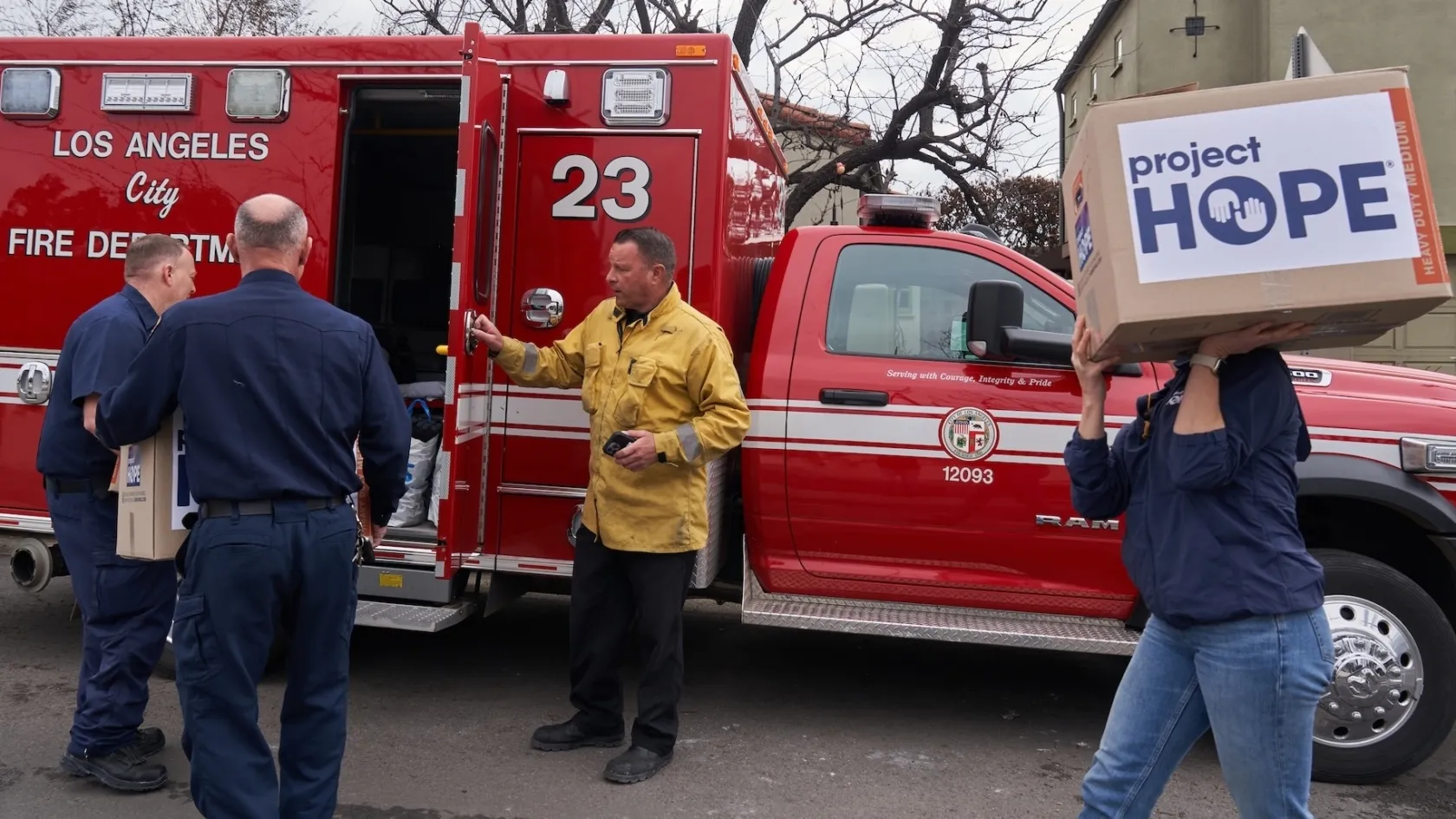COVID-19 Is On Track To Become 2020’s Leading Infectious Disease Killer, Warns Dr. Tom Kenyon
According to data by the World Health Organization and UNAIDS, COVID-19 deaths have surpassed AIDS deaths recorded in 2019 and are on track to surpass tuberculosis-related deaths as a leading cause of death.

Bethesda, MD, USA (19 November 2020) — As the coronavirus pandemic surges to unprecedented levels around the world, global health leaders are sounding alarms. According to data by the World Health Organization and UNAIDS, COVID-19 deaths have surpassed AIDS deaths recorded in 2019 and are on track to surpass tuberculosis-related deaths as a leading cause of death.
Dr. Thomas Kenyon, Chief Health Officer at Project HOPE and 21-year veteran of the Centers for Disease Control and Prevention (CDC) issued the following statement:
“The COVID-19 pandemic has reached a catastrophic stage at the global level and here in the U.S. Clearly, this is a global emergency, and we need to act with the determination, investment, scale and speed of responding as if we are in a world war with the virus.”
“Currently at 1.3 million deaths globally, COVID-19 is on track to become the leading infectious disease killer in the world in 2020, exceeding the annual number of deaths from HIV, tuberculosis, and malaria. This is staggering. Here in the U.S., over 250,000 deaths have occurred, putting COVID-19 on course to become the third leading cause of deaths in the U.S. after cardiovascular disease and cancer. It didn’t need to be this way if Americans had complied with simple evidence-based control measures – wearing masks, avoiding crowds, maintaining a safe distance from others, and thorough handwashing.”
On frontline health care workers facing burnout as cases soar:
“There are many heroes emerging from this pandemic, but none greater than our frontline health workers. They are exhausted and discouraged beyond comprehension. They feel abandoned by those who are not taking this pandemic seriously and spreading misinformation. Many are resigning. Many have become infected themselves and even died. All are making sacrifices for the sake of saving and protecting other Americans. That’s what they are trained to do, but health workers need our support. Most of all, they need leaders and the public to take this crisis seriously and comply with prevention measures. They need relief, and they need us to prioritize and optimize the upcoming COVID-19 vaccination program.”
On the promise of vaccines:
“It is wonderful news that dedicated scientists have developed safe and efficacious COVID-19 vaccines. But the U.S. COVID-19 vaccination program laid out in CDC’s interim playbook is going to be one of the most operationally complex and logistically challenging vaccination campaigns in U.S. history. To reach a high level of vaccination coverage as quickly and safely as possible, it is critical that we have a fully funded, standardized, national COVID-19 vaccination program, rather than leaving each state to its own devices.”
On holidays and new CDC guidelines:
“The public health community sees a very alarming sequence of gatherings coming up over the winter holidays. However, if we can all just lay low this year, and adhere to basic safety and public health protocols, we have a good chance of returning significantly closer to normal by this time next year.”
About Project HOPE
Project HOPE is a global health and humanitarian relief organization that is committed to placing power in the hands of local health care workers to save lives across the globe.
Project HOPE was the first global health organization to respond on the ground in Wuhan, China when the initial COVID-19 outbreak occurred and have since distributed over 11 million pieces of personal protective equipment, provided training for over 83,000 health workers in 8 languages, and reached more than 150 countries.



